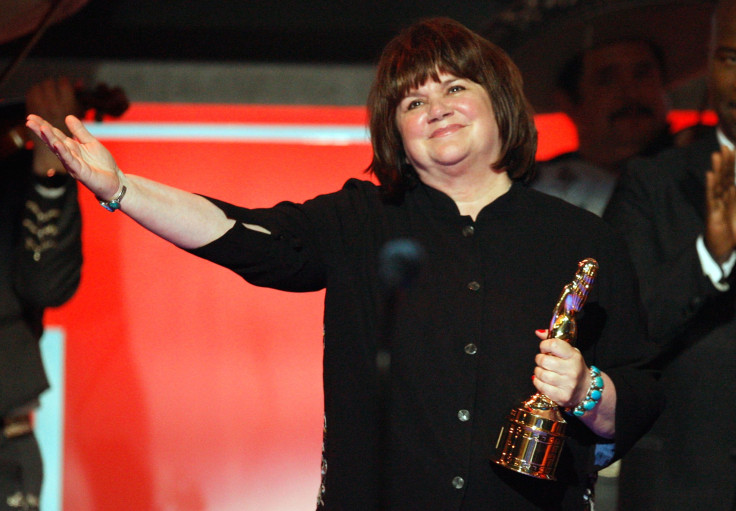
Many people were shocked after learning that 11-time Grammy Award winner, two Academy of Country Music award winner and Emmy and ALMA Award recipient, Linda Ronstadt, was diagnosed with Parkinson’s disease and her voice was forever shut, since her condition prevents her from singing at all. "No one can sing with Parkinson's disease, no matter how hard you try," she said in an interview with AARP.org
The 67-year-old songstress, whose vocal range spanned the octaves from contralto to soprano, discussed her disease in an unexpected heart-to-heart confession while promoting her memoir “Simple Dreams,” which is slated to be published next month. Ronstadt, who churned out hits including “Poor Poor Pitiful Me,” “You’re No Good” and “Just One Look,” now uses poles to assist her when walking on uneven ground and travels with a wheelchair.
Her 40-year career produced more than 30 albums and 15 compilations or greatest hits albums, and collaborations with artists from a diverse spectrum of genres including Billy Eckstine, Frank Zappa, Rosemary Clooney, Flaco Jiménez, Philip Glass, Carla Bley, The Chieftains, Emmylou Harris, Gram Parsons, Dolly Parton, Neil Young, Johnny Cash, and Nelson Riddle. She has lent her voice to over 120 albums.
Ronstadt charted 38 Billboard Hot 100 singles, with 21 reaching the top 40, 10 in the top 10, three at #2 and "You're No Good" at #1. In the UK, her single "Blue Bayou" reached the UK Top 40 and the duet with Aaron Neville, "Don't Know Much", peaked at No. 2 in December 1989. In addition, she has charted 36 albums, 10 top-10 albums and three #1 albums on the Billboard Pop Album Charts.
Linda Ronstadt's music was a mix of everything her family listened to when she was growing up, from rock 'n' roll, jazz, rhythm and blues, gospel, opera, country, choral, to mariachi, since her family has some Mexican in their blood. To honor her ancestors and her heritage, she even released an album of traditional Mexican folk songs, or what she describes as "world class songs", titled “Canciones de Mi Padre,” arranged by famed Mariachi musician Rubén Fuentes.
At the time, many Mexican-American artists were forced to hide their heritage to become more popular and to prevent from being framed in a particular style, but Linda was a household name that took her commercial success and influence and used it to her favor, but also opened up a path to other American-born Latinos in the business. After “Canciones de Mi Padre” became a hit, she joined forces again with Fuentes and the band he produces, Mariachi Vargas, and released two more Spanish albums, “Mas Canciones” and “Frenesí” in the early 90’s.
Her final CD, “Adieu, False Heart,” recorded with Cajun musician Ann Savoy, was released in 2006. Three years later she gave what she calls her last concert at the Brady Memorial Auditorium in San Antonio. After that, Ronstadt simply declined all invitations to do more.
The singer said she was only diagnosed with Parkinson’s about eight months ago, but she has been experiencing symptoms — like hand tremors and trouble controlling the muscles that allowed her to sing — since roughly eight years ago. “I think I’ve had it for seven or eight years already, because I’ve had the symptoms that long,” she said in her interview. “Then I had a shoulder operation, so I thought that must be why my hands were shaking. Parkinson’s is very hard to diagnose. So when I finally went to a neurologist and he said, ‘Oh, you have Parkinson’s disease,’ I was completely shocked. I was totally surprised. I wouldn’t have suspected that in a million, billion years.”
Not only were the obvious signs there, but Ronstadt also started noticing her voice wasn’t the same. “I couldn’t sing for the last five or six years I appeared on stage, but I kept trying. I kept thinking, ‘What if I tried singing upside down? Or standing on my head? Or while juggling? Maybe I’d be able to sing better then,’” she said. “So I didn’t know why I couldn’t sing — all I knew was that it was muscular, or mechanical. Then, when I was diagnosed with Parkinson’s, I was finally given the reason. I now understand that no one can sing with Parkinson’s disease. No matter how hard you try. And in my case, I can’t sing a note.”
The singer's memoir, "Simple Dreams," will be published Sept. 17, but she told AARP that it does not discuss her illness.
© 2025 Latin Times. All rights reserved. Do not reproduce without permission.





